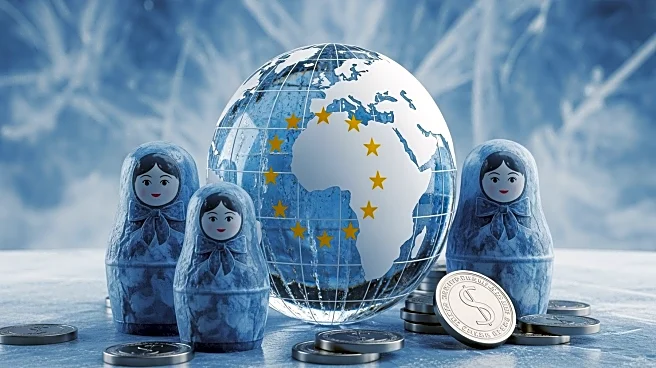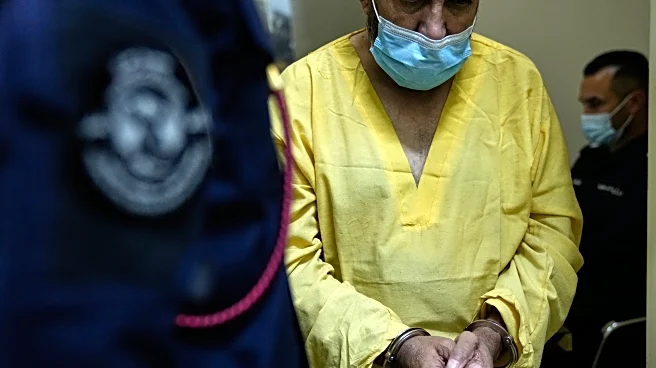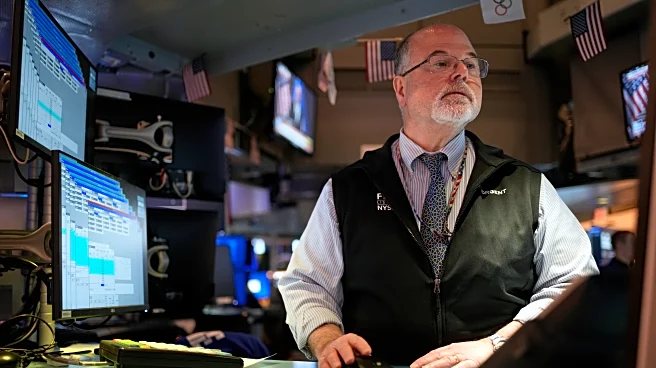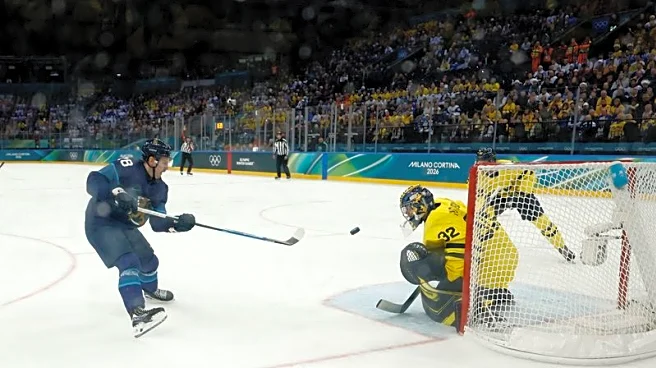What's Happening?
The European Union is currently deliberating on the possibility of utilizing frozen Russian assets to fund war reparations for Ukraine. These assets include reserves from Russia's central bank and securities belonging to millions of Russian private investors
who are not subject to Western sanctions. Despite being legally entitled to reclaim their assets, these investors face significant challenges in practice. The frozen securities are held by European depositories such as Belgium's Euroclear and Luxembourg's Clearstream, which severed ties with Russia's National Settlement Depository following the onset of the Ukraine conflict. The total value of frozen assets in Europe is estimated at approximately €210 billion, with a significant portion belonging to private individuals.
Why It's Important?
The EU's consideration of using frozen Russian assets for Ukraine reparations highlights the complex interplay between international sanctions and private investor rights. This decision could set a precedent for how frozen assets are managed in geopolitical conflicts, potentially affecting millions of Russian investors who are not directly involved in the conflict. The move could also influence EU-Russia relations and impact the broader geopolitical landscape. If implemented, it may lead to legal challenges from investors seeking to reclaim their assets, thereby complicating the EU's sanctions policy and its enforcement.
What's Next?
The EU's decision on whether to use these frozen assets for reparations is pending, with potential implications for both Russian investors and the broader geopolitical context. If the EU proceeds, it may face legal challenges from investors and diplomatic repercussions from Russia. Additionally, the EU may need to establish a framework for distinguishing between state-owned and private assets, ensuring compliance with international law. The outcome of this decision could influence future sanctions policies and international asset management practices.
Beyond the Headlines
The ethical and legal dimensions of using private assets for reparations are significant. This situation raises questions about the rights of private investors in geopolitical conflicts and the responsibilities of international bodies in managing frozen assets. The EU's approach could influence global norms regarding asset freezing and reparations, potentially affecting future conflicts and international relations.
















